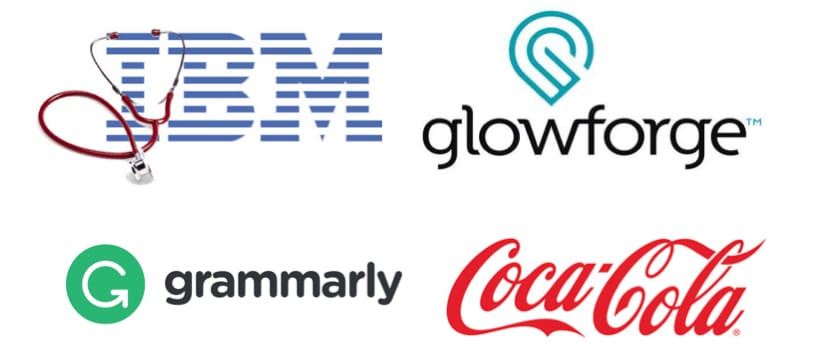Media coverage of crowdsourcing-related activities in the various sectors of the crowd economy landscape has graduated out of the specialist platforms focused on by the innovators and early adopters and in to a wider arena. It is widely expected that artificial intelligence, automation and robots – among other developments – will cause significant negative disruption to the jobs market, and this gives opportunities for sensationalist and sometimes alarmist headlines to grab reader and viewer attention and satisfy commercial media imperatives.
The other side of the coin is that these same developments will create a host of new employment opportunities, many of which did not even exist just a few years ago and undoubtedly there will be some that still do not yet exist today. Here is a snapshot of some recently advertised work opportunities that demonstrate some of the new types of jobs available in the crowdsourcing sector.
 IBM is recruiting research scientists with PhDs and advanced skill levels related to creating and leveraging artificial intelligence techniques, such as biostatistics or machine learning, to develop next-generation AI methodologies that will have a profound impact on health and healthcare, thus improving many people’s lives. Working with real world healthcare data, successful applicants will be expected to bring a proactive approach to problem solving and work on exciting, cutting-edge projects in Massachusetts or New York.
IBM is recruiting research scientists with PhDs and advanced skill levels related to creating and leveraging artificial intelligence techniques, such as biostatistics or machine learning, to develop next-generation AI methodologies that will have a profound impact on health and healthcare, thus improving many people’s lives. Working with real world healthcare data, successful applicants will be expected to bring a proactive approach to problem solving and work on exciting, cutting-edge projects in Massachusetts or New York.
Based in Seattle, Washington, Glowforge manufactures 3D laser printers that instead of making objects out of plastic strands uses a laser to quickly cut and engrave bespoke products made from an array of materials including leather, wood, fabric, acrylic, cardboard and paper. In 2015 the company and its products really caught the imagination of hobbyists, artists and entrepreneurs who swamped their in-house reward crowdfunding project with almost $28m of pre-orders in 30 days – all without there being a single independent product review available to read.
 The massive scale of the public demand tested Glowforge’s resources and there were production and delivery delays, though it also made the company attractive to corporate backers who invested $22m in 2016. At the end of August 2017 Glowforge had 67 employees and right now are recruiting plenty more to fill roles in Marketing, Operations, Software and Hardware
The massive scale of the public demand tested Glowforge’s resources and there were production and delivery delays, though it also made the company attractive to corporate backers who invested $22m in 2016. At the end of August 2017 Glowforge had 67 employees and right now are recruiting plenty more to fill roles in Marketing, Operations, Software and Hardware
Whilst many of these vacancies are not themselves directly involved in crowdsourcing-related activities, the fact that any of the vacancies exist at all is testament to the effectiveness of online reward crowdfunding – begun as we know it today just eight years ago by Indiegogo and Kickstarter – to galvanize mass public support and build such large businesses as Glowforge in such a relatively short time.
Grammarly is the first widely adopted AI communication assistant helping people with the content of their writing beyond spell checking. It is available in a variety of writing interfaces, including browser and desktop integrations, helping users in both their personal and professional lives for  communicating through email or social media, applying for jobs, or even filling out online dating profiles. The service goes beyond the basic spell and grammar checks because it can identify correctly spelled words that are used in the wrong context. Using Grammarly can raise productivity and efficiency for professionals in a wide range of fields, including marketing, sales, engineering, customer support, and education.
communicating through email or social media, applying for jobs, or even filling out online dating profiles. The service goes beyond the basic spell and grammar checks because it can identify correctly spelled words that are used in the wrong context. Using Grammarly can raise productivity and efficiency for professionals in a wide range of fields, including marketing, sales, engineering, customer support, and education.
They currently seek candidates with an undergraduate or master’s degree in Linguistics who have also taken courses or have a degree in Computational Linguistics / Natural Language Processing (NLP). The role includes overseeing and monitoring large annotation projects conducted via crowdsourcing (Mechanical Turk, for example) and/or contractors, and researching areas in which writing and communication can be computer-assisted. Naturally, applicants’ English grammar and syntax has to be excellent. Successful candidates will be based in the company’s New York office.
Outside of new types of fulltime employment roles, crowdsourcing has opened up possibilities for all types and sizes of organization to search beyond its regular workforce for open innovation solutions to business challenges on a project by project basis. And working on a series of stimulating projects suits many people who prefer a dip-in and dip-out gig-economy lifestyle to the contracted exclusivity of continual employment.
 The Coca-Cola Company has been running a Sweetener Challenge through HeroX with a $100,000 prize available to encourage people to submit tried and tested methods to naturally sweeten food or drink that have already been used safely for many years in different communities, cultures and families. There are no qualifications to have to possess or years of experience required in any particular fields, each submission will be judged purely on its own merits. A judging panel appointed by Coca-Cola will examine submissions and make awards to up to five winners by mid-December.
The Coca-Cola Company has been running a Sweetener Challenge through HeroX with a $100,000 prize available to encourage people to submit tried and tested methods to naturally sweeten food or drink that have already been used safely for many years in different communities, cultures and families. There are no qualifications to have to possess or years of experience required in any particular fields, each submission will be judged purely on its own merits. A judging panel appointed by Coca-Cola will examine submissions and make awards to up to five winners by mid-December.
What new types of work have you been involved with or heard about? We’d really like it if you could share some of your experiences with us.




0 Comments